Terrorism has no explanation that can be accepted by humanity; terrorism only has consequences. These consequences are always terrible for those against whom a terrorist act is committed. And, unfortunately, very often those who commit terror are able to avoid any consequences.
russia is an example of terrorism with a thirty-year history. However, the world has a mechanism that allows terrorists to be officially labelled as "terrorists". This is exactly what our joint special project with experts from the sanctions group is all about. It will enable us to answer two simple questions: why this is so important for the whole world, and why the russians are so afraid of it.
What is a State Sponsor of Terrorism?
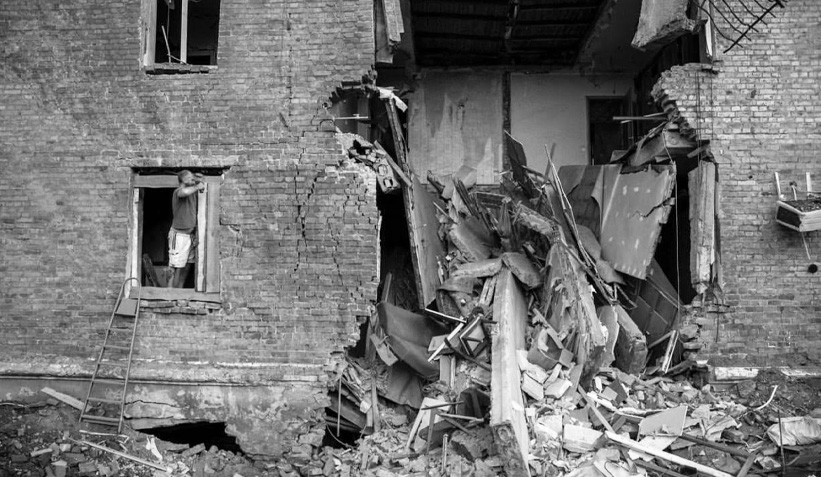
"State Sponsor of Terrorism" is an "honorary" status applied exclusively by the United States to certain countries for supporting acts of international terrorism. The designation can only be applied by the Secretary of State, who is part of the US government and is appointed by the president with the approval of the Senate. Antony Blinken has held the position of US Secretary of State since 26 January 2021.
Terrorism, in this case, for the "sponsor state" is considered to be the support of terrorist organisations, the commission of terrorist acts by agents of the relevant state, or the organisation and support of cyber-terrorism.
This status entails legal, economic and diplomatic consequences. The country in question becomes an exile on all major international platforms, and most of the world's countries will not want to have dealings with it due to the risk of complicating relations with the world’s policeman - the United States.
Other countries have made similar decisions to label russia as a State Sponsor of Terrorism - for example, the Lithuanian Seimas.
Purely politically, any country can adopt a declaratory resolution, or make another similar decision, and recognise russia as a State Sponsor of Terrorism. This will not have much effect on the strengthening of international sanctions, but it shows diplomatic support, which is also very important.
What does the status of a State Sponsor of Terrorism consist of?
All the restrictions on State Sponsors of Terrorism are listed in several main laws.
The first - Section 620A of the Foreign Assistance Act of 1961, as amended - prohibits US aid to such countries.
The second is Section 40 of the Arms Export Control Act, which "prohibits the export, credit, guarantee, other financial assistance, export licensing and general supply of ammunition under this Act".
The third is Section 1754(c) of the Export Control Act of 2018 - Licensing and Control, and there are a few other laws.
At the same time, the "package" of norms applied for each status is usually unique. That is, State Sponsor of Terrorism status is a toolkit consisting of separate norms with references to separate laws, which may be in addition to those listed above.
Okay. What specific acts of international terrorism does the russian federation commit?
In fact, there have been many such acts. The agent of the state - the army of the russian federation - has tortured and murdered civilians in Bucha, killed prisoners of war in Olenivka, launched and continues to launch rocket attacks on civilian facilities, as a result of which hundreds of citizens, including children, have been killed, and has been abducting people in Crimea and Donbas for a long time.
Another agent of the russian state - the private military company Wagner - has committed brutal murders and used chemical weapons against civilians in Syria. There is evidence of torture having been carried out by members of this group in Ukraine as well.
Here you can also add the atrocities committed during the wars in Chechnya, the shootings of civilians in Georgia, and regular cyber-attacks backed by the russian federation.

What consequences could there be for the russian federation if it is designated a State Sponsor of Terrorism?
1. Symbolic. Being designated one of the world’s main players in terms of atrocities and terror, which the russian federation carries out against the civilian population.
2. Diplomatic. It implies a reduction in formal ties and joint programmes between the US and russia, increased diplomatic alienation for russia, and possibly a mutual reduction of diplomatic missions.
3. Sanctions and restrictions on transactions. It will be illegal for US individuals and legal entities to have any financial dealings with the russian government. This gives rise to the blocking of all state-owned banks and state-owned enterprises of the russian federation and people connected with the state. It also entails tighter export control over a broader list of goods in trade between countries.
4. Secondary sanctions. The status itself constitutes grounds for the possible application of secondary sanctions to entities connected - by transactions, for example - with the State Sponsor of Terrorism and its agencies.
In other words, this means that the US and its allies can impose sanctions, usually financial or trade sanctions, on any country that continues to cooperate with the country with the corresponding status.
The grounds for such a decision will not be the existence of any threat to the US or the world order, but the fact that such country does not respect the sanctions on the State Sponsor of Terrorism. For example, Indian banks do not have any dealings with sanctioned russian banks as they are afraid that they will receive secondary sanctions from the US for this.
5. The addition of russia to the Financial Action Task Force (FATF) blacklist. The FATF is an intergovernmental organisation that develops and implements measures and standards to combat money laundering at the international level.
Unlike the partial disconnection of russian banks from SWIFT, such a step will affect the banking system of the russian federation totally, not selectively.
Being put on the FATF blacklist means the correspondent accounts of russian banks would be blocked around the world, including in China. And this is not just a restriction on the technology for transmitting financial messages: it is actually a "black mark" for the entire banking system.
That is, no financial transaction transfer technologies can be used. Chinese banks, for example, would have to terminate their correspondent relationships with russian banks if they wanted to keep their dollar- and euro-denominated correspondent accounts.
6. Judicial, executive, and sovereign immunity, or the real possibility of the russian federation being brought to justice in the courts of other countries.. Generally, the court of one country cannot issue a judgment against any other state; this is the basis of the international order. However, the status of State Sponsor of Terrorism implies an exception to that state’s jurisdictional immunity. In practice, this will allow US citizens, servicemen and officials (and only them) to claim and receive compensation in US courts for russia's actions in Ukraine (and possibly Syria), including through the forced seizure of russian state assets.
For example, the family of an American citizen who was killed by the russian military in Ukraine will be able to go to court in the United States and obtain a judgment awarding compensation for this crime, and this money will be recoverable in the United States from russian assets. About US$30 billion worth of russian assets in the USA (REPO estimate) are currently frozen, and our priority is to recover them for the reconstruction of Ukraine rather than as compensation for Americans pursuant to court judgments, and this is possible - more on this below.
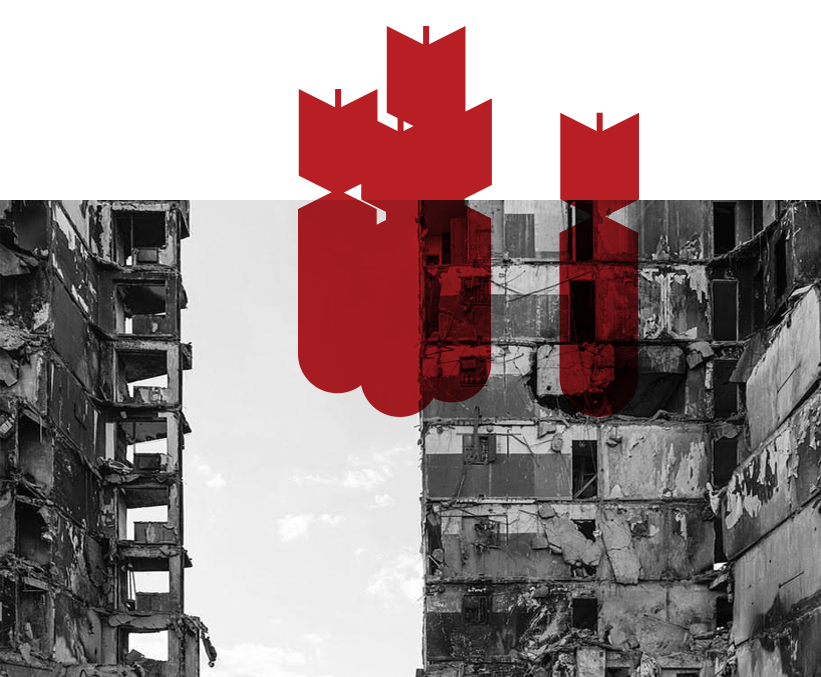
How does this status affect the leaders of the "terrorist state"?

If the status is imposed in a strict form, that is, all transactions with the state, public officials and enterprises are prohibited, then this will lead to further freezing of leaders’ assets. Depending on the format in which secondary sanctions are imposed, their effect may be extended to third parties who conduct such financial transactions with leaders.
Diplomatic isolation will also increase, because who would want to hang out with the head of a state that sponsors terrorism? And after all, this is no longer so important after Biden called Putin a war criminal.
How many countries are currently on the US list of State Sponsors of Terrorism? Is there a difference between them and russia?
The current list includes North Korea, Syria, Iran and Cuba. Previous lists have included Iraq, Libya, South Yemen and Sudan. russia's case most closely resembles Iran: a large country whose army commits atrocities and denies it, and whose government supports terrorist organisations.
North Korea, for example, received its status after shooting down a civilian airliner. In 1987, a civilian plane heading for Seoul exploded in mid-air after a bomb planted by two North Korean agents went off. (Anyone remember the Malaysian Airlines Boeing?)
Are there certain criteria or "markers" for being recognised as a State Sponsor of Terrorism?
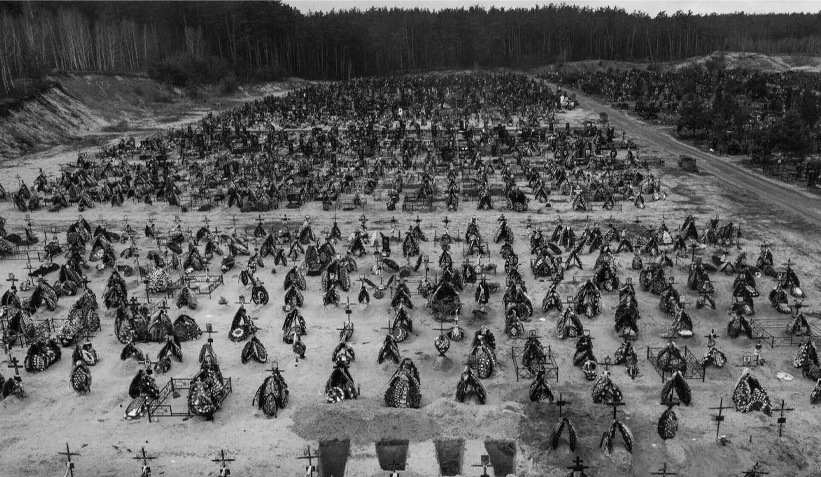
There is no checklist as such. However, evidence of the following actions by the country is usually required:
- Allowing its territory to be used as a hideout from extradition for terrorist activities.
- Providing weapons, explosive devices or substances for terrorist activities.
- Planning, directing, training or assisting in the implementation of terrorist activities.
- Providing financial support for terrorist activities.
- Providing diplomatic assistance, such as support by diplomats or documents for terrorists.
In general, this is not a complete list, and it is possible to interpret other actions of the state quite freely as "facilitating international terrorism", based on the interpretation of terrorism - "deliberate, politically motivated violence committed against civilians".
What does the process of labelling a State Sponsor of Terrorism look like?
Formally, this is a simple process. The US Secretary of State takes the decision to apply this designation and publishes a notice of it.
It appears hilariously concise: "In accordance with [list of legal provisions], I hereby determine that [country name] has repeatedly provided support for acts of international terrorism." That’s all.
Of course, behind this simple decision lie detailed analysis, memorandums, reports, other sources and consultations that confirm the "repeated support for acts of international terrorism" and the State Department's readiness for the consequences of applying this status.

Okay, but what does this labelling do to strengthen the sanctions regime against russia?
It makes it significantly simpler to apply secondary sanctions. The designation, as has already been noted, effectively blocks any financial transactions with the State Sponsor of Terrorism and its agencies in the Western world. Secondary sanctions are not imposed automatically, but the range of grounds for their individual application is extended.
It also significantly expands the lists of individual sanctions and makes it difficult for anyone to have any business relationships with the russian federation, because every instance of "business" with such a country could result in sanctions.
It is a significant argument for the introduction of any new/further international sanctions, because now it is not an equal member of the international community that is being sanctioned, but a State Sponsor of Terrorism.
And also, it is a kind of "armour" that prevents sanctions from being lifted or weakened, which may be even more important - who would want to make exceptions for a country that is not a "reliable energy partner", but a terrorist state?
Furthermore, it is an additional push for the implementation of further sanctions, for example, the recently agreed price cap on russian oil must be implemented - for which all brokerage, financial and insurance transactions involving oil and oil products should be controlled. State Sponsor of Terrorism status increases the likelihood of such control and therefore the practical implementation of a price cap or other sanctions.
For Syria and Iran, the US passed individual packages of secondary sanctions against banks and individuals involved in operations with "terrorists" outside the US.
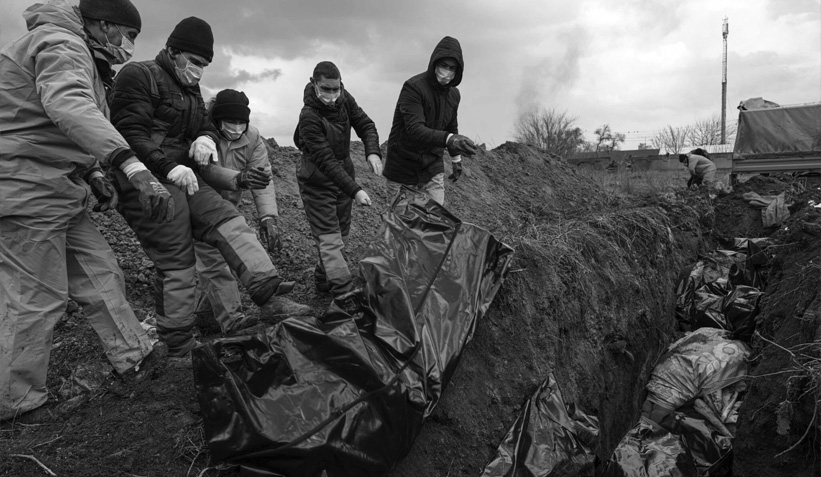
Will it be sufficient for the US Senate to pass resolutions to make this happen?
Not yet. The fact is that the resolution passed by the Senate merely calls on the Secretary of State to make the relevant decision.
Congress, however, can legally assign the appropriate status to russia, because it was Congress that gave the Secretary of State his mandate, and therefore it can do all this independently.
Nancy Pelosi, the Speaker of the US House of Representatives, has already asked Secretary of State Antony Blinken to designate russia as a State Sponsor of Terrorism, and emphasised that otherwise, Congress would do it.
It is true that this will only become possible if Biden signs the adopted law. But in any case, such a decision will mean significant political pressure, and it was Congress that finally forced the State Department to reinstate North Korea’s status as a State Sponsor of Terrorism in 2017.
Why is it important for Ukraine that russia is assigned this status?

First of all, it is just, and therefore it matters to the citizens of Ukraine and our most sincere allies.
Secondly, it will have the desired consequences for russia, namely the strengthening of sanctions, the economic, financial and diplomatic isolation of russia, and the subsequent economic effect.
Thirdly, it strengthens our negotiating position, especially with regard to opening up the path to the seizure of substantial sovereign assets.
Fourthly, russia has been a de facto terrorist state historically for about a hundred years, and Ukraine and the whole world have been suffering for a long time because of this and because of the reluctance to admit it, so it's time to establish the diagnosis of "russia as a terrorist country" and restore justice.
And finally, in terms of public communication, few people in the world would want to publicly support a state from the logic chain "North Korea, Syria, Iran..."
How exactly does this relate to the pathway for collecting reparations from russia?
There are fears that after the appropriate status is designated, numerous claims for compensation for damages caused by Russia's aggression will immediately appear in the US courts. Moreover, if, for example, Syria is added to the justification for the status, then the consequences of actions in Syria will become a theoretical basis for lawsuits. Such compensation will be paid out of the assets of the russian federation, and Ukraine, which cannot file such a lawsuit, will not be able to count on the entire amount of seized russian federation funds in the future.
But there is a solution here as well: the frozen funds of the russian Central Bank should be excluded from the sphere of influence of the State Sponsor of Terrorism regime. Various methods could be used: either a Congress resolution (bill), or a decision by the Administration to transfer funds to the account of the Federal Reserve, or possibly others. The main thing is to "remove" sovereign assets from the potential lawsuits that will proliferate after the revocation of sovereign immunity. That is, to do it before labelling russia as a State Sponsor of Terrorism.
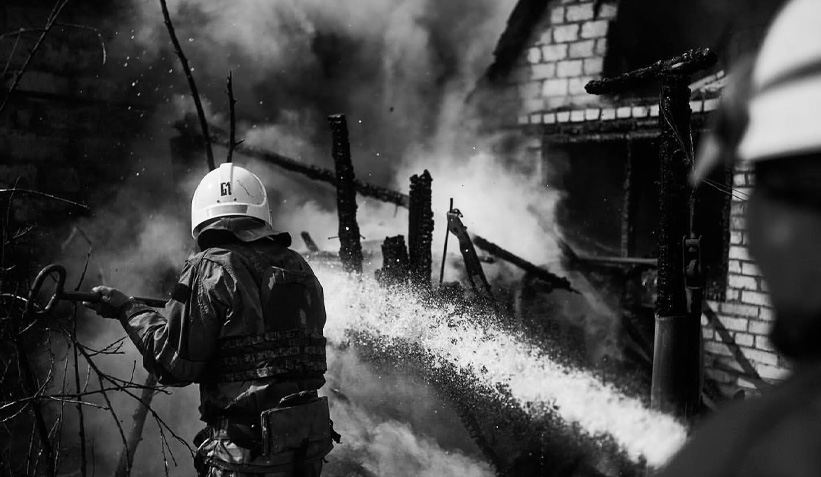
Why is the State Department hesitating about designating russia as a State Sponsor of Terrorism?
The russian federation is a major nuclear power, and the termination of diplomatic relations with it is a geopolitical shock that can have various consequences, some of them unpredictable.
From statements made by the White House: this could seriously affect the ability to provide assistance in regions of Ukraine; it may force critical humanitarian exporters to withdraw from facilitating food exports; there are concerns about possible unintended penalties for allies.
We respect these concerns, but do not fully share them. The occupied territory of Ukraine is Ukrainian, so even the temporary presence of russian troops there is not a reason to extend restrictions on State Sponsor of Terrorism status to the relevant territory; the status will affect the export of food only in respect of agreements with the russian state, and it may also have humanitarian exceptions - and we remember who blockaded Ukrainian ports, and who uses starvation as blackmail (which is a form of terrorism, isn’t it?); secondary sanctions are an "additional" part of the complex State Sponsor of Terrorism "toolkit", that is, they are imposed individually, although cooperation will indeed be the basis; however, it may, on the contrary, push "neutral" countries that continue to trade with the russian federation to make a choice in favour of the coalition.
In general, there is an opinion that this will still not force russia to stop the war; on the contrary, it will push it to the brink, because then the aggressor will have nothing to lose.
However, it is impossible to counter every risk: does that mean we should be afraid of them? And it is hard to imagine what else russia can do that it has not done already, if it is supposedly pushed to the "brink of isolation"? Moreover, State Sponsor of Terrorism status can be reviewed and revoked, as was done recently with Cuba.
In what case can the status of terrorist state be reviewed?

A country’s State Sponsor of Terrorism status can be reviewed, but politically it is a difficult process that can take years.
The fact is that the review requires the US president to submit a report to Congress confirming that the state has either (1) undergone fundamental changes in leadership and policy, stopped supporting acts of international terrorism; or (2) has refrained from supporting international terrorism for a period of at least six months and has given assurances that it will not resume its support in the future.
It is difficult to predict how events around russia will develop. The last such decision - the withdrawal of the status from North Korea in 2008 - had signs of being a purely political agreement.
So if this happens, will russia be screwed?
Maybe yes, maybe not. But it will ultimately transform russia into North Korea, only a larger version without Juche.
| Tweet |